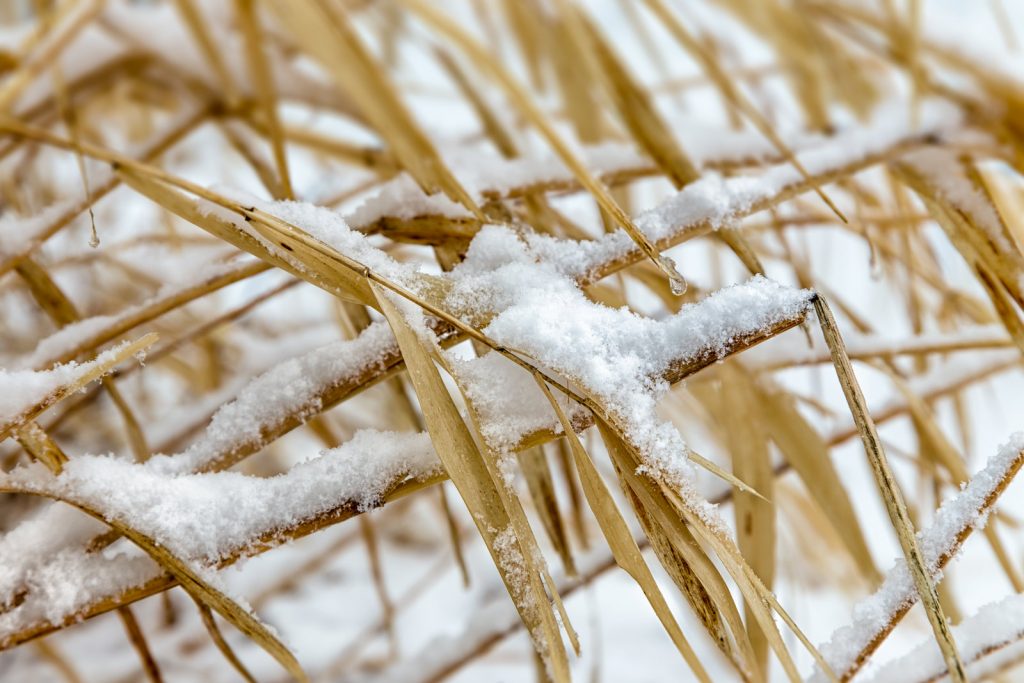
Winter is a time when many people forget about their lawn.
After all, it’s covered in snow and there’s not much you can do with it, right? Wrong!
Damaging a dormant lawn in the winter can cause serious problems for your grass come springtime.
In this blog post, we will discuss how to avoid damaging your lawn during the winter months.
That way you can enjoy a healthy and lush green lawn come spring. Without the headache of fixing a big problem!
What is a Dormant Lawn?
A dormant lawn is a lawn that is not currently growing.
The grass may be brown or covered in snow, but it is still alive.
Grass typically goes dormant in the winter because it’s too cold for photosynthesis to occur.
This means that it has different needs than usual in order to survive.
Damaging a dormant lawn can cause serious problems for your grass come springtime, including dead patches and decreased growth.
How to Avoid Damaging a Dormant Lawn
There are several things you can do to avoid damaging your dormant lawn this winter.
Here are some things to keep in mind:
Beware of Tools
Do not rake or shovel the snow off of your lawn.
This can damage the grass and disturb the soil.
Instead, use a snowblower or a push broom to remove the snow from your lawn.
Alternatively, don’t leave snow to pile up too much if you can avoid it.
You don’t want your lawn to get oversaturated.
Tread Lightly
Do not walk on your lawn if it’s covered in frost or ice, as this can compact the soil and damage the grass.
This can cause dead patches to form come springtime.
Instead, walk on another part of your property that doesn’t have any grass growing on it.
Get Stingy with Salt
Avoid using too much salt or other de-icing products on your lawn during the winter months.
This too can damage the grass and soil and inhibit growth in the spring.
Instead, use sand or sawdust to help make walking surfaces safer for you and your loved ones when there is ice on the ground.
Water Sparingly
Do not water your lawn during the winter months, as this can cause the grass to freeze and die.
If you live in a climate where there is snow on the ground for most of the winter, you do not need to water your lawn at all.
In fact, overwatering can damage the fragile root system of your lawn. Instead, let nature take care of it!
Protect Dormant Grass
To further avoid damaging a dormant lawn, you can also take steps to protect it.
Apply a light layer of mulch to your lawn to protect it from the cold weather.
Mulch will help keep the soil warm and moist, and will also prevent the growth of weeds.
How to Start New After Damaging a Dormant Lawn
If you’ve already damaged your dormant lawn, you have a few options.
You can repair, reseed, or replace.
Repair Damage Yourself
You can try to repair the damage yourself, or you may need to call in a professional.
If there are only a few dead patches, you may be able to repair them yourself by reseeding the area and watering it regularly once temperatures rise.
Reseed the Lawn
If there is significant damage, you may need to re-seed the entire lawn.
This can be a time-consuming and expensive process, so you may want to consider hiring a professional.
Seeding your lawn involves demolishing the old lawn, prepping the soil, and spreading and fertilizing seed.
Then you will need to water carefully until a new lawn takes hold.
Install New Sod
You may opt to install new sod instead of messing with seed.
Sod is great because the new lawn will be established much more quickly and will be healthier sooner. However, installing sod is more expensive than seed.
If you do install new sod, be sure to choose a hearty turf like TifTuf Bermuda or JaMur Zoysia grass to avoid this issue next winter.
Avoid Damaging a Dormant Lawn – The Bottom Line
Damaging a dormant lawn in the winter is one of the biggest mistakes homeowners can make.
If you’re not careful, you could end up costing yourself time and money.
Luckily, you can follow these tips to avoid damaging a dormant lawn in the winter.
And in the event you decide your lawn is too far gone, you can always start fresh with beautiful, dense sod!
Conclusion
In conclusion, safeguarding your dormant lawn during winter is essential for a vibrant spring resurgence. By adopting preventative measures and avoiding common pitfalls, you can ensure a healthy and lush green lawn. Should damage occur, there are viable options for recovery, ranging from DIY patch repairs to reseeding or sod installation. Winter lawn care is a proactive investment that pays off in the form of a resilient and beautiful lawn when warmer days arrive.
FAQs:
Can I use a regular shovel to remove snow from my lawn?
It is not recommended to use a regular shovel, as it can damage the grass and disturb the soil. Instead, consider using a snowblower or a push broom to remove snow without causing harm to your dormant lawn.
How much salt is too much when de-icing my lawn?
Using too much salt can damage the grass and soil. It’s advisable to avoid excessive salt and consider alternatives like sand or sawdust to make walking surfaces safer during icy conditions.
Is it necessary to water my lawn during winter if there’s snow on the ground?
No, it’s not necessary to water your lawn during winter, especially if there’s snow covering the ground. Overwatering can harm the grass’s fragile root system, so it’s best to let nature take care of it.
Can I repair small patches of dead grass on my dormant lawn myself?
Yes, you can try repairing small patches by reseeding the area and watering it regularly once temperatures rise. If the damage is extensive, professional assistance may be needed.
Is seeding or installing sod a better option for repairing a damaged dormant lawn?
The choice between seeding and sod installation depends on the extent of the damage and personal preferences. Seeding is more time-consuming but less expensive, while sod provides a quicker and healthier result but is costlier. Choose the option that suits your specific situation and budget.
Can I apply fertilizer to my dormant lawn during winter?
It’s generally not recommended to fertilize dormant grass in winter, as it may encourage new growth that can be vulnerable to frost damage. Save fertilizer applications for the active growing season.
Is it beneficial to mow the lawn before winter sets in?
Mowing your lawn shorter before winter can help prevent diseases and pests, but avoid cutting it too close to the soil. A moderate trim is advisable to maintain grass health.
Are there specific types of mulch that are better for protecting a dormant lawn?
Organic mulches like straw or bark are commonly used for winter protection. They help insulate the soil, retain moisture, and deter weed growth. Avoid using heavy mulch layers, as they can trap excess moisture.
Can I still use my lawn for outdoor activities during the winter months?
It’s best to avoid using the lawn for activities when it’s covered in frost or ice, as this can compact the soil and harm the grass. Opt for alternative areas without grass cover for outdoor use.
Should I remove leaves from my dormant lawn during winter?
Removing excessive leaves is advisable, as they can trap moisture and create a breeding ground for diseases. However, a thin layer of leaves can serve as natural mulch, providing insulation to the grass.
